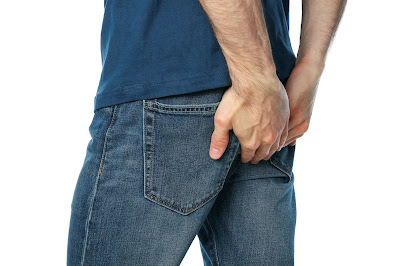Gastroparesis: When Your Stomach Slows Down – What You Need to Know
Have you ever felt unusually full after just a few bites of food, or experienced frequent bloating and nausea after meals? These could be signs of gastroparesis, a digestive condition that disrupts the natural movement of food through your stomach.
Let’s break down what this condition means, what causes it, and how it can be managed.
What Is Gastroparesis?
Gastroparesis is a disorder that affects how the stomach muscles contract. Normally, your stomach pushes food into the small intestine for digestion. But with gastroparesis, this movement is delayed—not because of a blockage, but because the stomach muscles aren’t working properly. This delay can cause various uncomfortable symptoms and interfere with proper nutrition.
Common Signs and Symptoms
Gastroparesis doesn’t always look the same in every person, but some of the most frequently reported symptoms include:
Feeling full too quickly when eating
Nausea, sometimes followed by vomiting undigested food
Bloating or a swollen feeling in the abdomen
Stomach discomfort or pain
Acid reflux or heartburn
Fluctuating blood sugar levels (especially in diabetics)
Poor appetite and unexpected weight loss
If these symptoms happen regularly, it’s worth speaking to a healthcare provider.
What Causes Gastroparesis?
There isn’t always a clear cause behind gastroparesis, but some known triggers include:
Diabetes – Long-term high blood sugar can damage the nerves that control the stomach muscles
Surgical injuries – Surgeries involving the stomach or esophagus may affect nerve function
Certain infections – Viral infections can sometimes trigger the condition
Medications – Painkillers, antidepressants, and some high blood pressure drugs can slow digestion
Neurological issues – Conditions like Parkinson’s disease or multiple sclerosis may contribute
In many cases, doctors can’t find a specific reason—this is known as idiopathic gastroparesis.
Possible Complications
Ignoring or leaving gastroparesis untreated can lead to serious issues like:
Nutritional deficiencies and weight loss
Severe dehydration from frequent vomiting
Hard lumps of undigested food (called bezoars) forming in the stomach
Unpredictable blood sugar levels, especially in people with diabetes
Managing these risks involves early detection and a tailored treatment plan.
How Is It Diagnosed?
Doctors may recommend a combination of tests to confirm gastroparesis, such as:
Gastric emptying studies – to measure how fast the stomach empties
Endoscopy – to rule out any structural blockages or ulcers
Imaging tests like ultrasound or CT scans to get a clearer picture of your digestive tract
Treatment and Management
While there isn’t a one-size-fits-all cure, managing gastroparesis often includes a mix of the following:
1. Dietary Adjustments
Eat smaller, more frequent meals
Choose soft, low-fiber foods that are easier to digest
Avoid greasy or high-fat meals
2. Medications
Prokinetics (to help move food through the stomach faster)
Anti-nausea drugs to relieve symptoms
3. Lifestyle Changes
Stay upright after meals
Walk gently to stimulate digestion
Chew food slowly and thoroughly
4. Blood Sugar Control
For people with diabetes, maintaining steady glucose levels is crucial
5. Severe Cases
If oral feeding isn’t enough, feeding tubes or gastric stimulators may be considered
Final Thoughts
Gastroparesis can be a long-term condition, but it doesn’t have to take control of your life. With the right combination of diet, medications, and support, many people find relief and lead a healthy life. If you’ve been facing unexplained digestive issues, it’s time to talk to a doctor—you don’t have to navigate this journey alone.
Why Choose Dr. Moode Jayanth?
With over 9 years of experience in surgical gastroenterology and a specialisation in robotic surgery, Dr. Jayanth, the Best Gastro Doctor, offers personalised care for patients with gastroparesis. His expertise ensures accurate diagnosis and effective treatment plans tailored to individual needs.
👉 If you’re experiencing persistent digestive discomfort, don’t ignore the signs. Book a consultation with Dr. Jayanth today and take the first step toward better digestive health.



.jpg)
Dr. Anupam Goel is a Gastro Surgeon in Chandigarh who has years of experience in managing the complex gastrointestinal situations. He is a skilled expert in laparoscopic and robotic GI surgery specialising in expert diagnosis and evidence-based treatment with a patient-first focus. Thousands of people in the Tricity area trust his work.
ReplyDelete